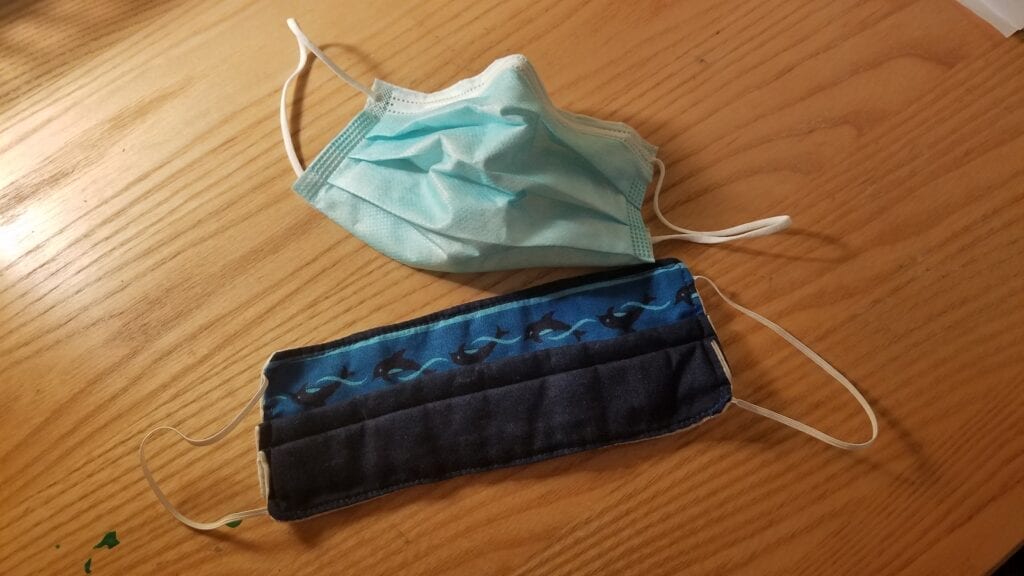September 27, 2020

By Julia Korenman, M.D.
Every March, I blog about colon cancer screening for colon cancer awareness month. This year, the state shut down. Our endoscopy centers shut down except for emergencies and my blog stayed in reserve while we all hunkered down. Now that we have adjusted to the “new normal” and are performing screening examinations again, it is time to remember the importance of preventive care, including colon cancer screening. Health care professionals are concerned that fear of covid 19 will prevent people from seeking medical care, even now that doctor’s offices and procedure centers have re-opened. Norman Sharpless the director of the NCI (National Cancer Institute) put out a statement that models predict 10,000 excess deaths from colon cancer and breast cancer over the next 10 years due to delay in diagnosis. My patients currently ask me two questions as we discuss scheduling their colonoscopies. The first is, “is it safe to delay the procedure?” The second is, “is it safe to have the procedure?”
How safe is it to wait? It depends on your personal risk for having colon cancer or another serious intestinal issue. If you have symptoms, such as bleeding, abdominal pain or change in bowel habits, you should not wait, but should consult with your doctor. A colonoscopy under those circumstances is not considered a screening test, but a diagnostic test and should not be significantly delayed.
You may have had colon polyps in the past, or have a strong family history of colon cancer. The “wiggle room” in timing will depend on the length of time since your last colonoscopy and the findings at that examination. Again, please consult your doctor.
The level of coronavirus in Maryland is relatively low and stable currently. We do not know what will happen in the late fall and winter, when flu season begins and we don’t know when a vaccine will be available so I feel that this is a window of opportunity to take care of medical care that has been postponed, or is due now.
How safe is it to have the procedure? Medical practices and outpatient surgery/procedure centers have generally changed their processes to allow an even safer environment during the pandemic. For example, our practice has taken the precaution of testing every patient for covid-19 a few days before their procedure. All patients are also questioned for symptoms of covid-19, exposure, and travel. Patients’ temperatures are checked when they enter the center. The staff members undergo the same screening questions and temperature check. Social distancing is practiced in the center and the procedure rooms are cleaned thoroughly between patients. No one is allowed in the center except staff and patients. And we all have the personal protective equipment that is needed to keep patients and healthcare workers safe. When you plan to go to a doctor’s office or procedure or surgery center, you should ask what precautions are being taken to keep you safe so that you will feel comfortable proceeding with your care.
And now, here is 2020’s postponed blog on colon cancer screening:
The ribbon for colon cancer awareness is blue. I was blue in March this year, not only because of the pandemic but because I had just heard of another fatal case of colon cancer, that could have possibly been prevented. My good friend’s 55 year old baby brother died of metastatic colon cancer. He had never had a screening colonoscopy. Having had several colonoscopies myself, I admit, it is not my favorite way to spend the day, or night. There is a day of restricted eating (usually a clear liquid diet), a night of watery diarrhea (ugh) and then the procedure the next day. Usually the day prior is the worst part. The colonoscopy is done under a type of anesthesia called propofol, which is quite comfortable and generally does not cause prolonged drowsiness or vomiting. There is some bloating after the procedure, which mostly wears off by the next day. And there is the relief of having had my screening test and knowing that my insides are ok unless I develop symptoms, or it is time for the next test! Last year I wrote an update on colon cancer screening. Please reference it for more details. Colon cancer is the one cancer that we can PREVENT, not just DETECT, as pre-cancerous polyps can be removed by colonoscopy and therefore not be given a chance to grow into cancer. If you have not yet had your colonoscopy and you are 45 years old or older, or have risk factors (see prior blog), please talk to your doctor about colon cancer screening, even during the pandemic. Let’s make next March less blue J!
